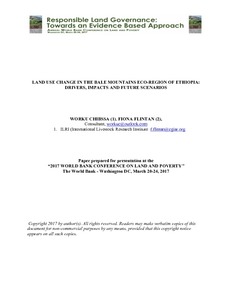An in-depth analysis of the laws and practices related to land expropriation for the Lekki Free Trade Zone in Lagos, Nigeria
This article was submitted for the UN Economic Commission for Africa “2017 Conference on Land Policy in Africa” Nov. 14-17 2017, Addis Ababa, Ethiopia.
This article sheds light on a series of events that triggered escalating tensions over land and resources in the coastal communities of Lagos, Nigeria. This article provides an in-depth analysis of Nigeria’s laws on expropriation and the processes of acquiring land and compensating landholders in the Lekki Free Trade Zone (LFTZ) case. Specifically, the analysis addresses the following research questions:









